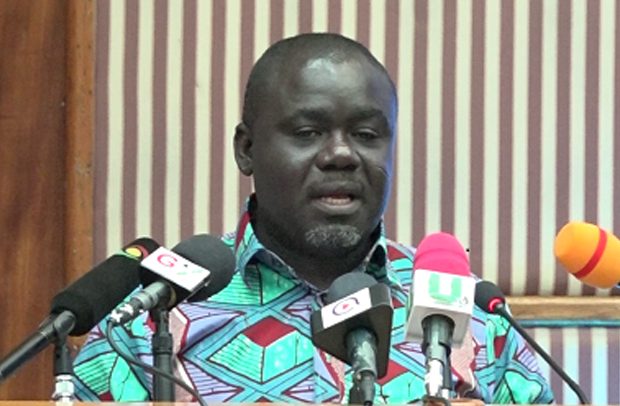Kwaku Ofori Asiamah
THE MINISTER of Transport, Kwaku Ofori Asiamah, has tasked the Ghana Maritime Authority (GMA) to do more in promoting sustainable shipping practice which includes enforcing the Cap Sulphur 2020 Initiative.
He expressed the readiness of the ministry to support the regulatory body in implementing the regulation which has so far seen a ban on ships with sulphur emission of over 0.5 per cent being enforced, in accordance with the International Maritime Organisation (IMO) guidelines.
Mr. Asiamah made the remarks in a speech read on his behalf by the Chief Director of the ministry, Abigail Sagoe, at the commemoration of the World Maritime Day Thursday in Accra.
The programme was held under the theme: ‘Sustainable Shipping for Sustainable Planet’.
The Cap Sulphur 2020 regulation was formed with the intention of lowering sulphur content in bunker fuel from 3.5 per cent to 0.5 per cent, thereby reducing the emission of sulphur oxide into the atmosphere.
The Director General of the GMA, Thomas Kofi Alonsi, said the growth of seaborne trade at 4.5 per cent per annum has unfortunately had an adverse effect on marine life and human environment due to the large consumption of million barrels of oils on a daily basis.
“The maritime industry is reported to account for over 90 per cent of the transport sector fuel emissions into the atmosphere and an estimated amount 3.5 to 4 per cent of all climate change emissions,” he said.
The onus of protecting the environment, he said, therefore lies on the sector to reduce its emissions which include the carbon dioxide emissions which is expected to rise to about 250 per cent by the 2050 if left unchecked.
In line with achieving its objectives of protecting the environment, he indicated that the authority has procured sulphur test kits, among other equipment, to ensure compliance of the Cap Sulphur regulation.
He also commended the IMO for setting up regulatory frameworks that are “fair and effective, universally adopted and globally implemented”.
Mr. Alonsi emphasized the need for a collective approach with emphasis on technical cooperation and transfer of technology so as to improve energy efficiency of ships which would go a long to help achieve Sustainable Development Goals (SDG) Agenda of 2030.
By Issah Mohammed


